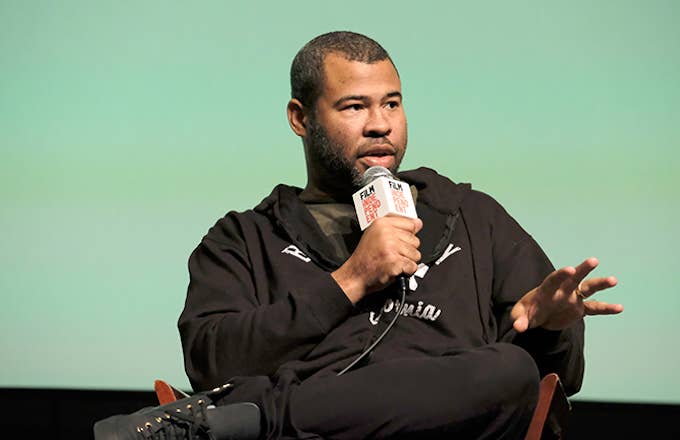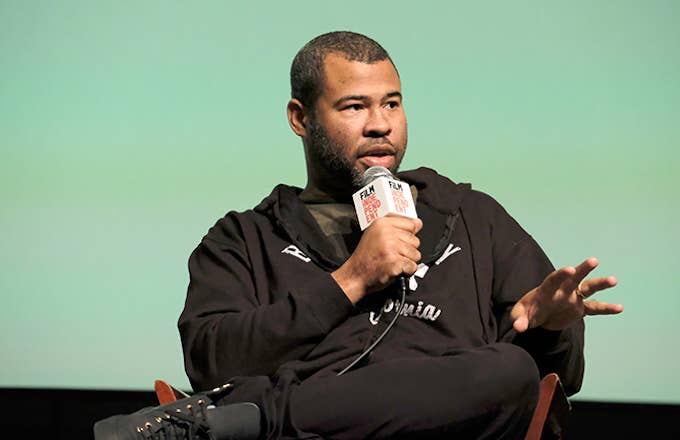
At the Film Independent Forum on Sunday, Get Out director Jordan Peele spoke in-depth about his wildly successful film in a discussion with moderator Elvis Mitchell of KCRW. Peele says he worked on the movie during the Obama administration, a time he refers to as a post-racial lie where people believed that racism no longer existed.
"Being an African American, I have never seen my perspective in a horror film,” said Peele. “[Get Out] has my worst fears realized as a black man in this country — from the evil white girl who’s been lying to you to the lacrosse stick — those things are foreign to me."
From the very first scene where Lakeith Stanfield's character is tailed by an unknown vehicle, we're introduced to a harsh, horrifying, and overlooked reality for African Americans throughout this country. “Black people would recognize that fear — it’s part of the black identity and the horror America,” he said. "There are things we are cognizant of because we have to be. For white audiences, they see how it is to be a black man in a suburban neighborhood at night.”
In creating something specific to his point-of-view, Peele also wanted to subvert all too common movie tropes, such as the idea of the "white savior." Peele points out recent films like Hidden Figures and 12 Years A Slave which gives the white viewer a character they can identify with who is not racist. "Rose subverts that,” he said. "Sometimes all white people are evil — sometimes — but not all the time.”
All white people bashing aside, Peele admits that the main villain is something, or something, entirely different.
"The system itself is the monster — the idea of a social thriller explores how we interact,” he said. “That’s the thrill of the genre.”

